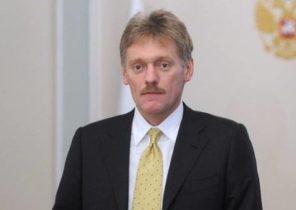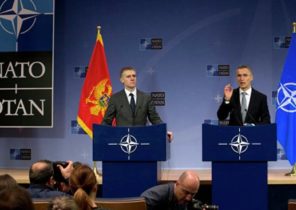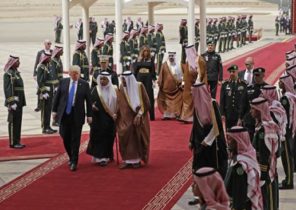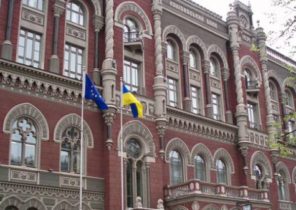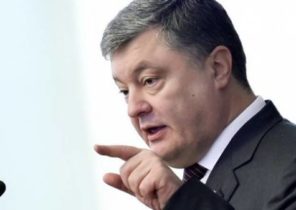Submarine force of the U.S. Navy — the most professional and technically advanced in the world. With their impressive tendency to be aggressive, but prudent to risk the crews of submarines of the United States deter threats, gathering intelligence and ready to take on any opponent.
In command of this secret service Vice-Admiral Codl Daryl (Daryl Caudle). He was very kind and agreed to answer our questions.
Washington Examiner: Given that the capabilities of the Russian submarine fleet is growing, how confident are you that you will be able to track the submarines with ballistic missiles of the Northern fleet since the release on combat duty before returning to base?
Cont: I am absolutely convinced that our anti-submarine forces will be able to respond to any underwater threat we may face. None of the submarine fleet — either former or current — can’t compete with the us. But it is extremely important to recognize and decisively to counter operational threats posed by our potential adversaries, constantly expanding its capacity. We give these threats a priority — to make the right investments and maintain a competitive advantage.
Washington Examiner: How do you solve operational issues concerning China, Russia and other unforeseen circumstances?
Cont: Our submarine forces deployed around the world and are always ready to give a deadly response to any challenge. The purpose of submarines is to carry out the tasks of the Navy of the United States in the underwater region. In addition to integrating, and multiplying power of the naval forces, submarine forces, among other things, use the special advantages of stealth, to ensure prompt, deterrent and combat potential, which the fleet would otherwise have not received. This potential can be translated inside the underwater area or through its borders through far advanced submarines, or in wide ocean areas, as a result of carefully coordinated operations with other forces or independent action, in peacetime, in a period of tension or during a conflict.
Washington Examiner: How do you expect the evolution in the field of unmanned underwater combat and sensor platforms?
Cont: Unmanned systems in future submarine warfare will play an important role. We work closely with the military-industrial complex, academia and military centers in the study, development and implementation of the right mix of unmanned platforms and sensors for their optimal use. Planning the future of subsea innovation for the sake of our superiority, we are looking for possible applications of artificial intelligence, machine learning and analysis of datasets for more efficient operation across the fleet to increase speed and quality of decision-making.
Washington Examiner: why and How the submarine force could maintain such a level of comfort in high-risk operations? For example, the ability of commanders to go to considerable risk in places of execution of tasks (for example, in the White sea)?
Cont: Actually in operations of high risk we are not comfortable anywhere else. But we are confident that our submarine crews and officers well trained and ready to successfully carry out its complex tasks. Our submarines before duty are extremely rigorous process of training and certification. We are talking about trust — we have no doubt that our commanders and crews will always observe the highest standards of professionalism and competence. Throughout their service they are ready to perform complex tasks at the request of our country. Therefore, combining confidence with a strict process of training and certification, we make sure that our soldiers have all the necessary skills and is able to make the right decisions and to carry out their work safely and efficiently.
Washington Examiner: How important are nuclear submarines with ballistic missiles (SSBN) class “Columbia” to preserve the effective capacity of the invisible nuclear deterrence? That is, whether an improved Sino-Russian ability to destroy sensor threat to Ohio-class and is there a risk that this platform will become obsolete?
Cont: Our submarines with ballistic missiles — the most enduring link of the nuclear triad. They represent the United States guaranteed the return potential unparalleled in any other country. The Ohio-class was our workhorse for several decades, and I’m sure he will remain a strong and convincing deterrent, while Columbia does not rise to the duty. Class submarines “Columbia” — the most valuable part of the procurement program of the Navy, it’s a significant investment in maintaining our strategic deterrence capabilities. We will continue to make efforts to ensure the availability, technology development and integration, in order to put into operation “Colombia” and to ensure the uninterrupted supply of strategic naval forces to prevent aggression by any adversary.
Washington Examiner: Given that the Navy confirmed that the unidentified phenomena from the air in the immediate vicinity of the strike groups of aircraft carriers, as you consider, whether there is a departure from the practice when traces of supercavitation sonar after the fact is defined as a sensor fault? And instead to identify some findings as underwater unidentified phenomena?
Cont: We train our crews to keep track of each contact locator, and then carefully assess them to determine that it is a cargo ship, a warship, a submarine, a fishing vessel or simply environmental noise, for example, whales, a school of fish or the weather. Our highly trained crews and all the sensors — the best in the world, and our training is constantly updated to reflect changes in the environment. So I don’t anticipate any changes in the method of identification, classification, tracking, and evaluating contacts in the background of the problems you mentioned.
Washington Examiner: as far As you are concerned non-professional underwater activities of Russia — for example, high-speed raids by American submarines, which can lead to a serious incident?
Cont: Our submarines are very quiet, with the world’s most advanced sonar and combat systems — this advantage allows us to work secretly throughout the world. Thus, we did not appreciate the unprofessional behavior, which you identified as a serious risk. The US, NATO and our partners reserve the right to act freely in accordance with international law, and we expect safe and professional conduct in international waters and the airspace of all countries, including Russia.
Washington Examiner: What good will NATO’s European members, who want to place their submarine forces more often?
Cont: Our allies and partners, including NATO, are extremely important to ensure regional stability and will be crucial in the resolution of any potential conflict. We regularly work with European submarine forces during exercises and in actual operations. As with our own Navy, but the longer the soldiers are in the sea and better prepared to perform their tasks, especially in combination with our forces, the better we will all be prepared and able to respond to the crisis. In my opinion, in offshore operations the more the better.
Washington Examiner: anything else you Want to add in the end?
Cont: Our submarines deployed around the world and are ready to answer the call 24 hours a day, 365 days a year. Tasks that our submarine forces perform every day is vital to the defense of the country. Submarine forces is an important part of the global Maritime security and the nuclear triad of the country. It is the merit of the sailors of the submarines and their families that support them.
